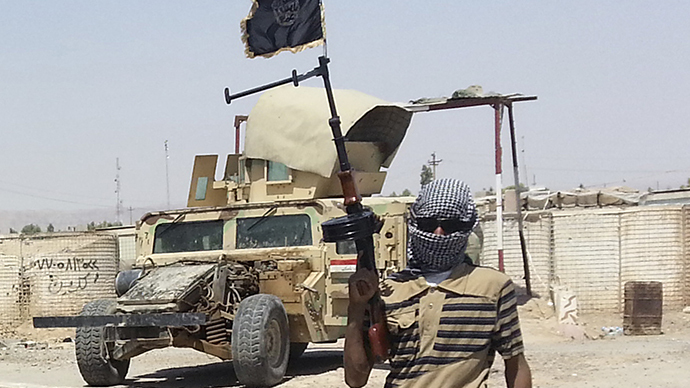Proposed Pentagon budget suggests millions for anti-ISIS tribal fighters

A leading Republican in the United States House has proposed a $604 billion spending plan for the Pentagon that would divert hundreds of millions of dollars next year to Kurdish and Sunni forces fighting the so-called Islamic State.
Rep. Mac Thornberry (R-Texas), the chairman of the House Armed Services Committee, unveiled his proposal for the 2016 National Defense Authorization Act, or NDAA, on Monday this week. It’s expected to be debated by the House Armed Services Committee on Wednesday.
“Our country has never before faced the spectrum of varied and serious threats to our security that we face today. Beginning to make these reforms, and seeing the reform process through in the future, is vital if we are to overcome these challenges,” he said in a statement.
Thornberry’s bill contains a provision that would directly fund tribal security forces engaged against the self-styled Islamic State, also known as ISIS or ISIL. Specifically, Thornberry’s $604 billion defense budget calls for funds to go towards assisting “the military and other security forces of or associated with the Government of the Republic of Iraq, including Kurdish and tribal security forces or other local security forces with a national security mission” in fiscal year 2016.
.@MacTXPress on FY16 NDAA reforms: US "has never before faced the spectrum of varied and serious threats to our security that we face" now
— Molly O'Toole (@mollymotoole) April 27, 2015
If approved, the provision mandates that anywhere from $178 million to $429 million of those funds go directly to the Kurdish Peshmerga, Sunni tribal security forces and the Iraqi Sunni National Guard.
The proposal calls for putting $715 million aside for anti-ISIS efforts led by locals in the region, but specifies that funds won’t be allocated to Baghdad if American officials determine that “ethnic and sectarian minorities” are not substantially represented in the new Iraqi government’s security forces.
“If the secretary of defense and the secretary of state do not assess that the government of Iraq has substantially achieved such conditions, the secretary of defense would be required to withhold fiscal year 2016 assistance directly to the government of Iraq,” the clause stipulates.
“Finally, this section would require that the Kurdish Peshmerga, the Sunni tribal security forces with a national security mission and the Iraqi Sunni National Guard be deemed a country, which would allow these security forces to directly receive assistance from the United States under this section” in the event that the conditions aren’t met, according to the proposal.
Someone's been lobbying Congress: Bill allocates $178mn to Iraq's Kurdish, Sunni 'country' http://t.co/AMy6lzNtenpic.twitter.com/M33J6j8CwP
— Borzou Daragahi (@borzou) April 28, 2015
The language is contained in Section 1223 of the congressman’s proposal, “Modification of Authority to Provide Assistance to Counter the Islamic State of Iraq and the Levant.”
Additionally, Thornberry’s proposed NDAA for fiscal year 2016 also calls for lethal weapons to be sent to Ukraine where military forces continue to battle pro-Russian rebels in the country’s east. Other provisions would reauthorize a ban on transferring detainees out of the US military’s prison at Guantanamo Bay in Cuba, and restore funding to the Pentagon’s embattled fleet of A-10 warplanes.
“This year’s NDAA will begin a process of much needed reform to the Department of Defense. These reforms are designed to recruit and retain America’s best and brightest, ensure that our forces maintain their technological edge, and to balance resources from the ‘tail’ to the ‘tooth’ of the force,” Thornberry said.












